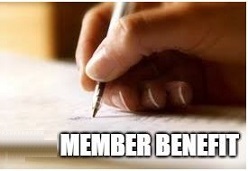 Many writers and people not directly in the publishing process do not know where copyediting fits in the process. Furthermore, many people don’t know the difference between copyediting and proofreading. The simplest answer is that copyediting is the last set of eyes before the manuscript is turned into a book, and proofreading is the last set of eyes before the book is published.
Many writers and people not directly in the publishing process do not know where copyediting fits in the process. Furthermore, many people don’t know the difference between copyediting and proofreading. The simplest answer is that copyediting is the last set of eyes before the manuscript is turned into a book, and proofreading is the last set of eyes before the book is published.
Whether you are a writer, editor, designer, proofreader, or another professional, where does your process for your specific service that you offer fit in this larger publishing process?

 June 1: National Say Something Nice Day. Make the day pleasant for someone today by saying something nice.
June 1: National Say Something Nice Day. Make the day pleasant for someone today by saying something nice.
 (
( April: English Language Month. A month-long celebration of the uniqueness of the English language and all the learners working hard to master it.
April: English Language Month. A month-long celebration of the uniqueness of the English language and all the learners working hard to master it.